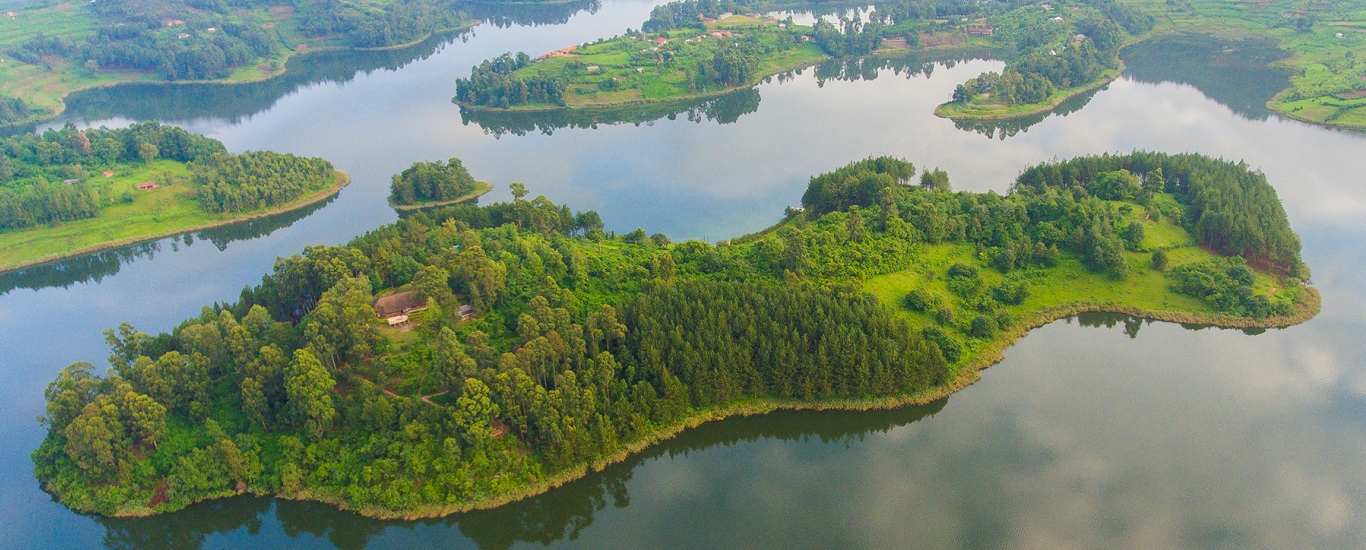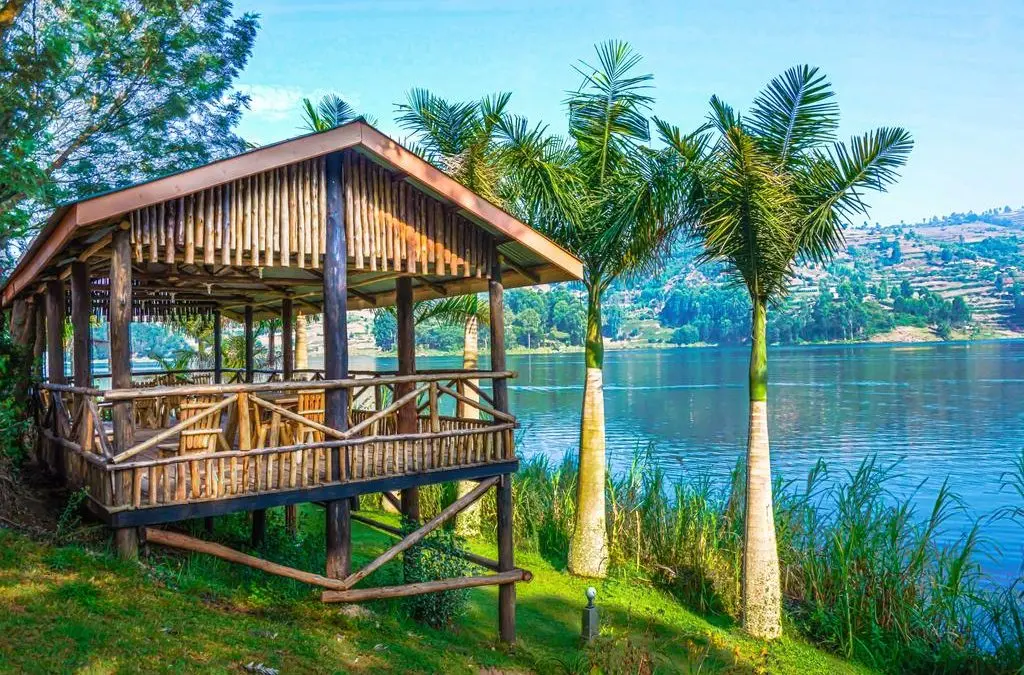3-Day Itinerary: Lake Bunyonyi Festival Guide with Limited Time
Experiencing Culture and Nature in a Limited Time
For travelers with limited time but a desire for deep cultural immersion, Lake Bunyonyi in southwestern Uganda offers a unique opportunity to experience vibrant local festivals, stunning landscapes, and community life. Known as the “Place of Many Little Birds”, Lake Bunyonyi is not only celebrated for its serene waters and picturesque islands but also for the rich traditions and festivities of the surrounding Batwa, Bakiga, and other local communities.
A three-day itinerary is sufficient to capture the essence of local culture, participate in festival activities, and explore natural beauty, offering a compact yet fulfilling experience for those seeking to maximize both time and cultural engagement. This guide is designed for travelers who wish to immerse themselves fully in the festival environment, sample local cuisine, and observe traditional ceremonies, all while appreciating the ecological and social significance of the region.
Day 1: Arrival and Orientation at Lake Bunyonyi
The journey begins with arrival in the town of Kabale or Kisoro, followed by a scenic drive to Lake Bunyonyi. The route showcases terraced hills, tea plantations, and rolling landscapes that provide a preview of the lake’s unique ecosystem. Upon reaching the lake, travelers are greeted by eco-lodges and boutique accommodations that offer both comfort and proximity to festival venues.
The first day emphasizes orientation and cultural acclimatization. Guests are introduced to the layout of the lake, local community dynamics, and the schedule of festival activities. Traditional performances, storytelling sessions, and communal interactions provide insights into the cultural backdrop, setting the stage for deeper engagement. Travelers are encouraged to observe local customs, participate in introductory workshops, and familiarize themselves with the culinary and artistic highlights that will be experienced over the next two days.
Day 2: Festival Immersion and Cultural Exploration
The second day is fully devoted to festival participation, allowing travelers to engage with local music, dance, and ceremonial rituals. Performances often include drumming, singing, and traditional dances that reflect the heritage of the Batwa, Bakiga, and other communities, providing a sensory-rich introduction to regional culture. Travelers observe the preparation of ceremonial attire, learn the symbolism of various rituals, and may participate in guided cultural activities under the supervision of local elders.
Food plays a central role in the festival experience. Local dishes, prepared using indigenous ingredients such as millet, cassava, sweet potatoes, and river fish, are served in communal settings. Cooking demonstrations highlight traditional techniques, including steaming, roasting, and fermentation, giving travelers the opportunity to understand how culinary practices are intertwined with culture and seasonal cycles. Sampling these dishes enhances appreciation for both taste and tradition, connecting festival activities with the broader context of daily life around Lake Bunyonyi.
In addition to performances and culinary engagement, travelers can explore islands on the lake, such as Akampene and Punishment Island, where historical narratives and local legends provide educational context. Guided tours across the lake’s islands highlight traditional land use, conservation efforts, and community livelihoods, linking cultural observation with ecological awareness. Photography opportunities abound, capturing both vibrant festival scenes and the tranquil beauty of the lake’s scenery.
Day 3: Reflection, Leisure, and Departure
The final day emphasizes reflection, leisure, and preparation for departure. Travelers are encouraged to participate in morning rituals, observe community activities, or take leisurely walks along the lake’s shore. This day allows for integration of insights gained during festival participation, including understanding the role of heritage, communal identity, and ecological stewardship in local life.
Brunches and final meals feature freshly prepared regional cuisine, providing a last opportunity to connect with local flavors and cooking traditions. Community visits may include craft workshops, agricultural demonstrations, or brief educational sessions, giving travelers a practical understanding of sustainable practices and economic initiatives in the region. Reflection sessions or guided discussions are often facilitated by lodge staff or local elders, enabling travelers to contextualize their experiences and consolidate both cultural and environmental knowledge.
The day concludes with transportation back to Kabale or Kisoro, where travelers can arrange onward travel or return to Kampala. The journey offers time to review photographs, share stories, and internalize cultural experiences, ensuring that even a short visit leaves a lasting impression.
Understanding the Cultural Context of Lake Bunyonyi Festivals
Lake Bunyonyi festivals are not merely entertainment; they are living expressions of cultural continuity, ecological awareness, and communal identity. The Batwa, for example, integrate rituals that honor ancestors and celebrate the interconnectedness of humans and nature, while the Bakiga emphasize agricultural cycles, harvests, and communal cohesion. Travelers gain insight into these practices by observing ceremonies, participating in workshops, and engaging with local elders, learning how traditional knowledge is preserved and transmitted.
Food, music, and dance are inseparable from cultural expression. Meals prepared during festivals are often symbolic, reflecting seasonal availability, agricultural success, and social cohesion. Sampling these dishes provides not only a sensory experience but also an understanding of local history, environmental adaptation, and social structure.
Gastronomic Highlights and Culinary Exploration
Culinary experiences during the festival include both street-level fare and community-prepared dishes. Traditional breakfast options such as millet porridge, roasted cassava, or steamed green bananas are accompanied by herbal teas or fresh fruit. Lunch and dinner often feature staples like river fish, beans, and leafy greens cooked with groundnuts or local spices. Travelers may also observe or participate in the preparation of fermented beverages, breads, or desserts unique to the region.
Hands-on cooking sessions enable travelers to gain practical skills while understanding the cultural significance of ingredients and methods. Interactions with local cooks provide insight into food preservation, seasonal adaptation, and communal sharing practices, highlighting how culinary traditions support both social and ecological systems.
Ecological and Scenic Integration
Lake Bunyonyi’s geography and ecology are inseparable from its cultural identity. The lake’s islands, volcanic hills, and surrounding wetlands provide both a backdrop for festivals and practical resources for communities. Villagers cultivate crops on terraced slopes, fish in the lake, and harvest local herbs, integrating ecological knowledge into daily life. Travelers are guided to observe sustainable practices, understand water management techniques, and recognize the role of biodiversity in supporting human activities.
Photography and observation opportunities abound, from capturing festival performances to panoramic lake views. Guides emphasize responsible and ethical photography, ensuring that cultural practices and community privacy are respected while allowing travelers to document and share their experiences.
Luxury and Comfort Considerations
Despite the intensive cultural engagement, accommodations around Lake Bunyonyi can cater to luxury travelers seeking comfort and curated experiences. Boutique lodges and eco-resorts offer panoramic lake views, private terraces, and gourmet cuisine prepared with local ingredients. Personalized services include guided tours, boat excursions, and flexible scheduling to accommodate festival events, ensuring a seamless balance between cultural immersion and relaxation.
These lodges often provide wellness options, including spa treatments, meditation sessions, and quiet areas for reflection, enabling travelers to recover from festival activities while maintaining connection with the surrounding natural and cultural environment.
Health and Safety Considerations
Short-term travelers should prioritize health, hydration, and safety, particularly when participating in active festival events or exploring the lake. Vaccinations, insect protection, and adherence to local guidelines are recommended to ensure a safe experience. Guides facilitate safe interactions with wildlife, community members, and festival participants, ensuring that travelers can engage fully without compromising personal or communal well-being.
Emergency protocols, first aid availability, and supportive lodge staff contribute to a secure environment, allowing travelers to focus on cultural, culinary, and ecological engagement with peace of mind.
Sustainable and Ethical Engagement
Responsible tourism is central to a meaningful visit to Lake Bunyonyi. Travelers are encouraged to support local economies, respect cultural norms, and minimize ecological impact. Participation in workshops, community events, and culinary activities is conducted with attention to ethical standards, ensuring that both the environment and community heritage are preserved.
Supporting local markets, artisans, and farms contributes to sustainable livelihoods, while adherence to festival etiquette and ecological guidelines ensures that tourism strengthens rather than disrupts local practices. This approach aligns short-term visits with long-term cultural and environmental sustainability.
Maximizing Limited Time for Cultural and Culinary Immersion
Even with just three days, travelers can experience a rich tapestry of culture, cuisine, and ecological awareness at Lake Bunyonyi. Festival participation, island exploration, and culinary engagement provide a condensed yet immersive journey that leaves lasting impressions. The itinerary balances active participation with reflection, allowing travelers to understand the interconnectedness of heritage, gastronomy, and natural landscapes.
For those wishing to explore Lake Bunyonyi fully while ensuring seamless logistics, curated experiences, and meaningful cultural engagement, booking through WildHorn Africa is highly recommended. Their expertise in arranging guided itineraries, local culinary experiences, and festival access ensures that even a limited-time visit is rich, educational, and unforgettable, creating memories that resonate long after departure.






